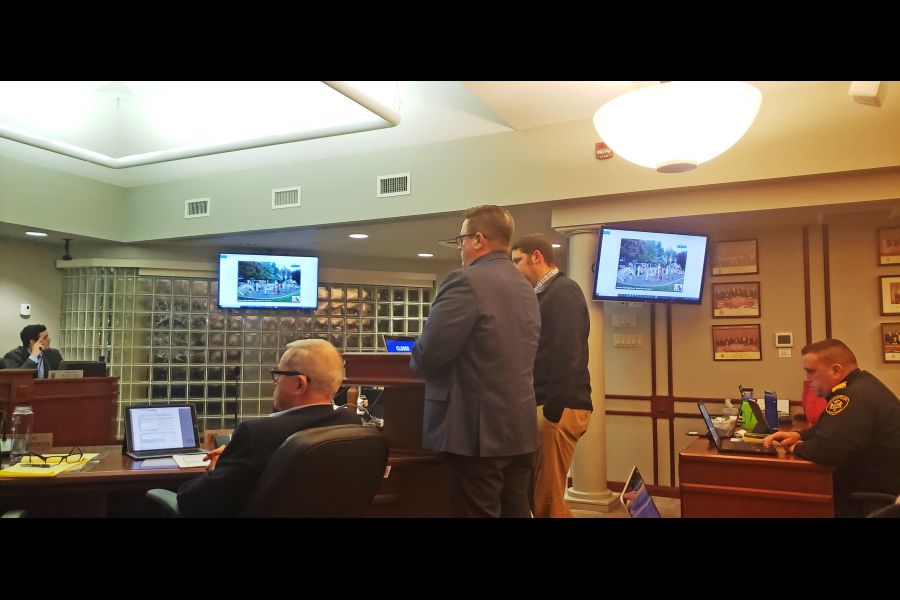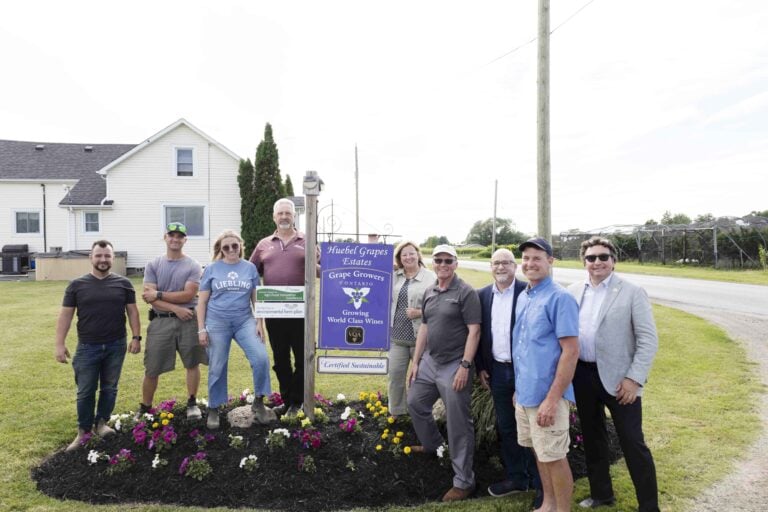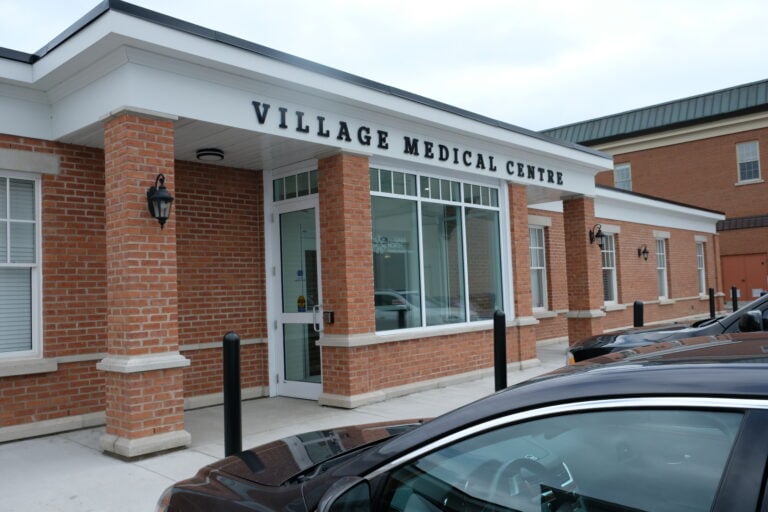If the town’s $37 million operating budget is approved as it stands, Niagara-on-the-Lake residents will see a 9.48 per cent increase on the municipal portion of their property tax bills in 2020.
Town council debated the hike Monday night during four hours of final budget deliberations. All around the table, councillors agreed it was necessary to raise taxes significantly this year to cover needed expenses, though they deferred the final decision until January to try to find additional savings.
“It’s part of our job to invest in our community, and I’m glad that we are doing that,” said Coun. Clare Cameron, after praising the audit committee, which presented the budget suggestions.
She said it’s important to consider the quality of life residents expect in Niagara-on-the-Lake, and argued that it costs money to provide services.
“Expectations in our town are very, very, very high,” said Cameron. “And there’s only so much time that can go by with expectations being so high before the bill comes in.”
Among major planned expenses for 2020 are almost $12 million in salary costs (a $473,980 increase), $1.15 million for legal fees (a $1 million increase, with $350,000 affecting the tax base), $516,490 in new positions ($78,000 affecting tax rates), $473,610 in debt (a $34,527 increase) and $300,000 for dock area contingency funds.
The remaining $650,000 for legal fees would come from the parking reserves, if required, Lord Mayor Betty Disero and director of corporate services Kyle Freeborn said in an interview Wednesday.
The average NOTL home is assessed at $530,900, so the town’s tax hike could translate into an increase of $104 per year for houses in the urban area. On top of the municipal levy, the Region of Niagara is increasing taxes 5.9 per cent, which will add about another $165 to the average tax bill.
Disero said the town’s large increase is partly a result of taxes not being increased sufficiently over several years. The average rate of increase from 2010 to 2019 was 2.45 per cent per year, according to town budget documents.
Freeborn said that number reflects that the town has been “catching up” for the last four years. Between 2010 and 2014 the taxes actually fell on average by 0.33 per cent.
“I think people have talked about previous councils having tax freezes, or decreases to taxes. And it is the worst game to play, because it gets you political points for the short term, but it will end up coming back to those people who are paying taxes in the long term,” Disero told councillors.
“When we were elected last year, the first thing that I talked about was we have to look at our budget and become self-sustainable. To think we only had two bylaw officers this summer. Why did that happen? It happened because previous councils did not have that forward thinking idea to accommodate what was happening in the town.”
She said in light of it being “a rough year” for the town, she’s proud of the committee for reaching the near 10 per cent increase. The original figure, she said, was around 24 per cent, and it took a lot of work to bring it down.
“They (members of the audit committee) were really to the point, going after every penny they possibly could,” said Disero.
Coun. Norm Arsenault also echoed her comments, and pointed out NOTL is one of the least taxed municipalities in Niagara Region as far as local tax rates go.
Based on the mill rate (the amount of tax per thousand dollars of a property’s assessed value), St. Catharines residents paid 0.54 per cent in 2019, while NOTL residents paid 0.21 per cent. Niagara Falls residents also see higher tax rates, at 0.44 per cent, while Port Colborne residents pay the highest tax rates in the region, at 0.86 per cent.
Even with a 9.48 per cent budget increase, tax rates are still lower in NOTL, based on property assessments.
Disero said in terms of what’s best for the town and residents, there’s money that needs to be spent.
“We can say, ‘No bylaw officers, we only want a one per cent tax increase or a two per cent tax increase,’ but we will just get further and further behind, and our services to our residents will suffer.”
Most of council agreed nine per cent is a large increase, but when factoring in all that needs to be done, agreed the audit committee (comprised of chair Coun. Stuart McCormack, and councillors John Wiens, Gary Burroughs, Allan Bisback and Arsenault) did a great job bringing costs down.
“Nine per cent I think is still a little bit high, and I don’t know what we can do to get it even further down than that,” Disero said. “Maybe we need to take a pause and look at and come back now that we have this as a full council, and come back with more ideas.”
Part of the town’s annual budget increase is a result of increased litigation against the town, according to the audit committee report, but Disero said she’s “not prepared” to back down from defending positions of council and residents.
“Legal fees are high this year, but they are again an accumulation of trying to defend the positions of council that were taken this year, in previous councils, and even previous to that,” she said.
‘In some of this, not all of it, we can turn around and say, ‘No, we’re not prepared to defend our position, let’s just let it go.’ But we will lose total control of what happens in this council chamber and around our town. And I’m not prepared to do that.”
McCormack said he disagrees with Disero that council is defending the decisions of a previous council.
“We’re defending a non-decision of a previous council,” he said. “And that makes a huge difference, frankly. You defer, you don’t make a decision, it ends up being appealed, and we’re forced to respond to that. There’s no other way around it.”
McCormack was referring to the previous council refusing to make a decision on developer Benny Marotta’s controversial plans for the Randwood property.
Disero said lawsuits are just an ongoing part of operating a municipal government.
“We get lawsuits all the time, whether it’s this council, the last council, and they all have to be dealt with. And we will leave lawsuits that future councils have to deal with.”
Coun. Wendy Cheropita said she thinks council may be able to find some other reductions to the operating budget, and that it’s prudent to do so to protect residents who are living on a fixed income, especially seniors.
“There’s a lot of good that’s going into the budget and there’s a lot of great things that everybody is going to benefit from, but a very big majority of our community are senior citizens who live on a fixed income, who, if they have to absorb a nine per cent increase, that is a horrendous amount of money to absorb when they’re not getting that kind of increase,” said Cheropita.
“It’s a really tough decision, in a very tough year. I think if we could just stop and take a pause and think about it until our next meeting, I think that would be a wise decision. There may be something that comes up that we may find that may help our situation.”
Bisback said while it’s a big increase, he thinks the town is doing the right thing.
“I don’t like nine per cent either,” he said. “But you know what, I can walk down main street and defend the nine per cent. Because when we sat through our various meetings in the audit committee, we sat and we tried to think, listen and make decisions that we thought were in the best interest of the residents and the town.”
He echoed Disero’s comments about supporting the legal costs.
“As it relates to legal costs, we did not take a cavalier approach to that. Because we have an obligation to be responsible to residents. And the approach we took is it would be irresponsible if we did not protect the residents and the town from what we think may take place in the next year.”
Arsenault asked to defer the operating budget to next year and council agreed.











